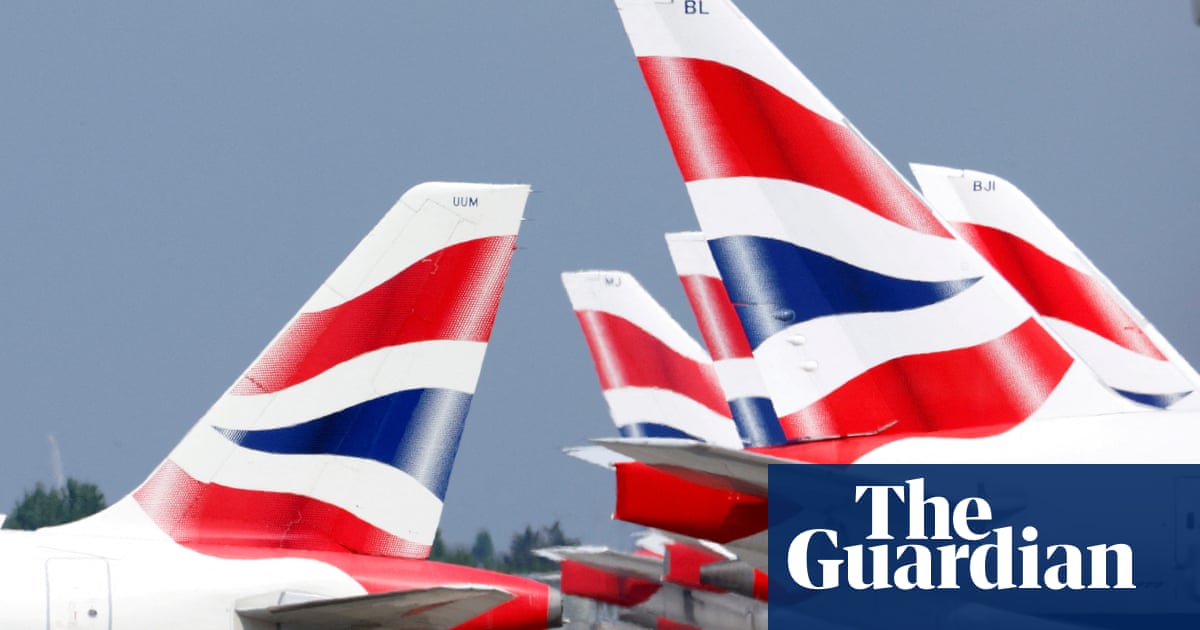
British Airways is to cancel more than 1,000 additional flights this summer from Heathrow and Gatwick as staff shortages continue to affect its operations, while refuelling staff at Heathrow have announced they will down tools later this month.
More than 100,000 travellers, including those planning to visit popular holiday destinations such as Málaga, Palma and Faro will be affected, although BA will primarily cut back routes with multiple daily departures.
And in the latest threat to the summer getaway, workers at Heathrow who refuel planes for 70 airlines including Virgin, KLM, Air France and Emirates have announced a 72-hour walkout on 21 July in protest at a three-year pay freeze.
The strike by the 50 Unite members who staff Aviation Fuel Services, one of four aircraft fuelling companies at Heathrow, could disrupt and delay flights at the start of the summer holidays. British Airways has a separate supplier and will not be directly affected.
Unite’s general secretary, Sharon Graham, said: “Oil and gas companies are making massive profits so AFS has the wherewithal to make a proper offer.”
BA, which in spring axed about 10% of its planned flights until October, has decided to further prune its schedule after the government offered a “slot amnesty” last month.
The move allowed airlines to temporarily reduce their operations without forfeiting the right to valuable landing slots at busy airports, normally awarded under a “use it or lose it” rule.
A British Airways spokesperson said: “We took pre-emptive action earlier this year to reduce our summer schedule to provide customers with as much notice as possible about any changes to their travel plans.
“As the entire aviation industry continues to face into the most challenging period in its history, regrettably it has become necessary to make some further reductions. We’re in touch with customers to apologise and offer to rebook them or issue a full refund.”
The airline did not dispute figures reported in the Telegraph, of 650 further cancellations in July, and it is understood that a similar number of flights are being removed from August schedules.
The share price of BA’s owner IAG dropped a further 3% on the news. Its market value has dropped by 40% in a little over four months as the optimism over the post-Covid rebound in travel has given way to a slew of negative headlines about aviation’s failure to cope with the demand.
In May, BA cut its capacity by around 8,000 flights for summer, in a move it said would ensure resilience. It now plans to operate just under 80% of its pre-pandemic schedule after the latest cut, a decision that underlines how recruitment remains a challenge.
The airline made thousands of cabin crew and ground staff redundant in 2020 and rehired the rest on inferior terms and conditions. It said it was forced into drastic measures to survive when coronavirus grounded all flights, leaving it dealing with losses of up to £20m each day.
Airlines and airports have been racing to rehire staff but have struggled in a tight labour market and with lengthy waits for background checks and security clearance. Long queues and chaotic cancellations have already been widespread at Easter and half-term in departure halls around the UK, even before the start of the peak holiday season.
The threat remains of strikes by BA’s ground staff at its main Heathrow base. Members of Unite have voted for action and are holding out to have 10% pay cuts imposed during the pandemic overturned.
BA is not unique in its problems, with its biggest competitor in the UK, easyJet, on Monday announcing it had parted ways with its chief operations officer Peter Bellew. The budget airline last month also cancelled about 10,000 flights from its summer schedule, reducing overall capacity from 97% of pre-pandemic levels to about 90%, as it attempts to recover after weeks of delays and last-minute cancellations.












